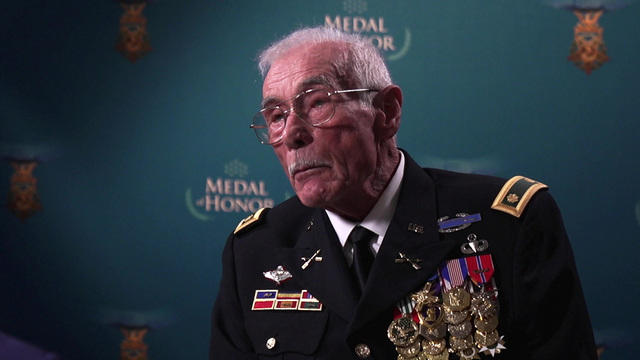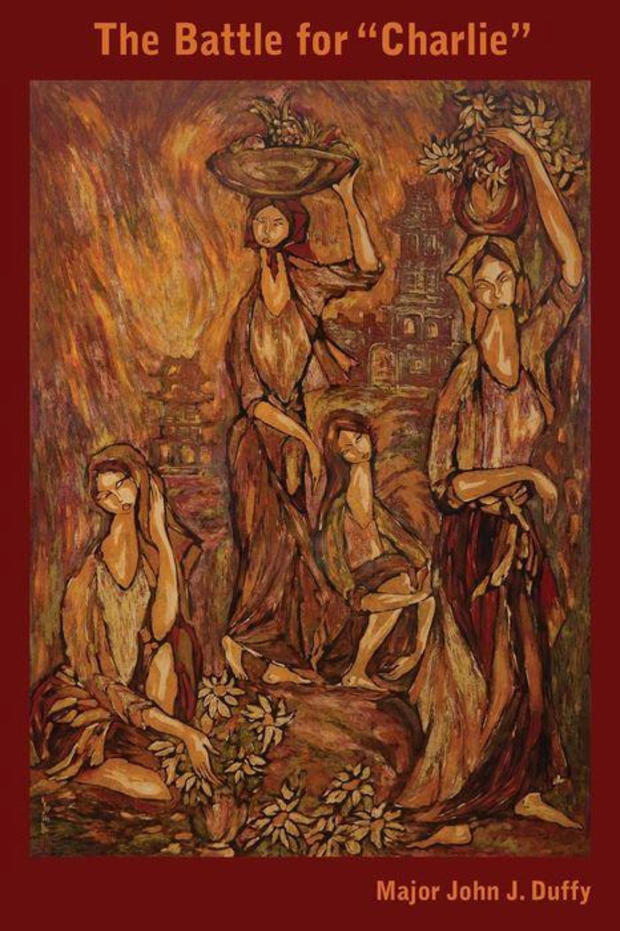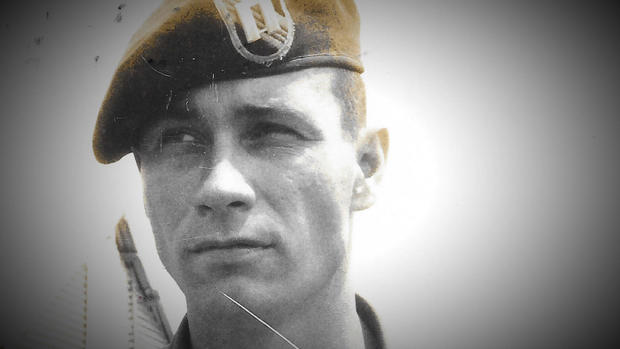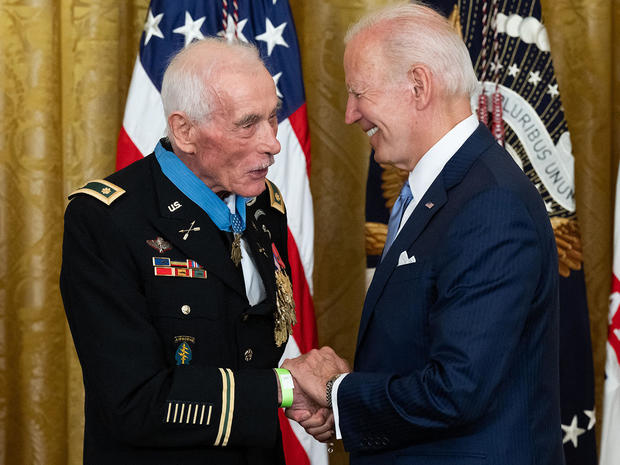▶ Watch Video: A Medal of Honor recipient’s epic poem of war
It’s not often (if ever) a recipient of the Medal of Honor is also a published poet. But retired Green Beret John Duffy turned his trial-by-fire into an epic poem of the Vietnam War.
It was a brutal battle; no quarter asked, none given.
You killed the enemy or the enemy killed you.
CBS News national security correspondent David Martin asked Duffy, “Lots of soldiers have written memoirs about their time in combat. You chose to write poetry. Why?”
“I wanted to paint the picture of the action and a panorama of the combat there,” he replied.
It’s called “The Battle for ‘Charlie,'” the name of a fire base blocking the North Vietnamese invasion route into the central highlands at the start of their 1972 Easter offensive. Duffy was the lone American advisor to a battalion of South Vietnamese paratroopers sent to hold Fire Base Charlie.
Be brave my comrades.
What else can we do?
There is no escape.
Kill or die is our fate.
“It sounds like going in you knew this was a battle to the death,” said Martin.
“We were given orders to fight to the death,” Duffy replied.
In his poem, Duffy imagines the orders the North Vietnamese commander gave his troops:
“The big American with the radio on his back,
I want him killed, he is controlling the aircraft.
He is attacking our anti-aircraft and artillery guns.
He moves often. Target him! He must be destroyed!”
Martin said, “That antenna was like a ‘kill me’ sign.”
“Plus, I was 6’2″, and the Vietnamese are typically about 5’6″,” Duffy said.
The air strikes he called in were the only thing keeping badly-outnumbered South Vietnamese troops from being overrun.
The battle raged back and forth.
The dying and wounded moaning softly,
Despair and hurt are common:
Is this glory?
Martin said, “That’s a good question: Is this glory?”
“Is this glory? No, it was a combat,” said Duffy.
“Throughout this poem, you don’t seem to have any hatred of the enemy?”
“No, no. They were fighting for what they believed in. We were fighting for what we believed in. And that’s the essence of war.”
Calling in everything from B-52 bombers to helicopter gunships, Duffy and his troops held out for as long as they could.
No one could’ve expected more from them.
Nothing more can be done, except to save them.
“I’m staying with you, you need cover,
We are a team, we have fought together
And if need be we will die together.
That may be the cost of saving our troopers.”
Death’s moment is near,
I can feel its flame.
Soon it will be here,
It seems strange no more.
Martin said, “Strange no more. So, basically you had accepted the fact that you were going to die?”
“It was getting a little dicey!” Duffy replied.
“It seems like, going in, your position was not survivable.”
“I think probably so, but I was never fearful in the whole battle.”
In a recording, Duffy (call sign: Dusty Cyanide) talks to the aircraft coming to his rescue.
“My situation is I got 37 personnel. Every time we’ve broke out trying to leave here, we got fired upon.”
One pilot informs him he is low on fuel and has to leave. “No sweat, man,” Duffy replies. “You did a good job. Next time I see you I owe you a big bottle of scotch.”
“Copy that.”
Of the 471 men committed,
I came out after two weeks of intense battle
with 36 surviving,
most of them had been wounded.
Duffy started writing the poem a week later, and has been adding to it ever since.
No one won on “Charlie”;
Each side managed to lose.
Then, he sums up his own career, starting as a 17-year-old private and ending as a major with four combat tours.
I guess I did well:
Not having gone to Hell.
Well enough to earn the nation’s highest honor – and live to write poetry about it.
For more info:
- Major John J. Duffy (army.mil)
- Major John J. Duffy (Congressional Medal of Honor Society)
- “The Battle for ‘Charlie'” by John J. Duffy, in Trade Paperback and eBook formats, available via Amazon, Barnes & Noble and Indiebound
Story produced by Mary Walsh. Editor: Ed Givnish.
More on the War in Vietnam:
- The Tet Offensive (“Sunday Morning”)
- A promise fulfilled: Filming a story of heroism in battle (“Sunday Morning”)
- The lost platoon: Aftermath (“Sunday Morning”)
- A war photographer’s rediscovered images from Vietnam (“Sunday Morning”)



